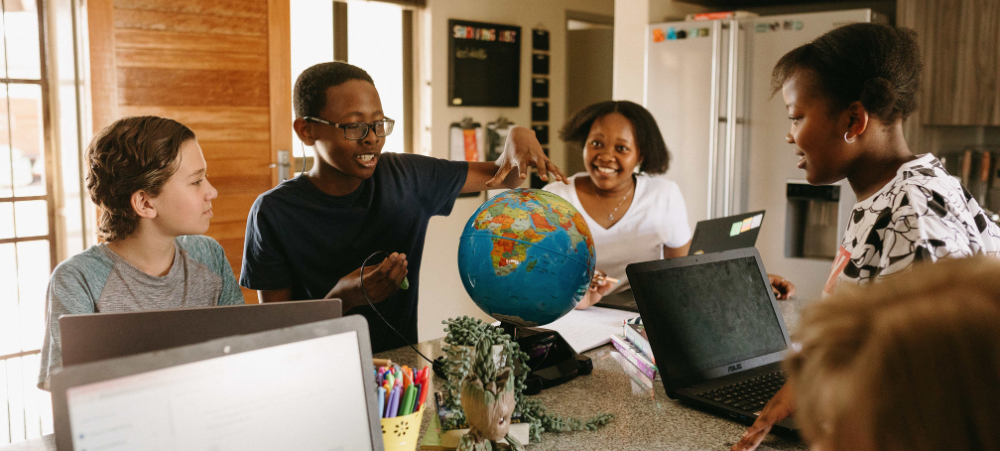Traditionally schools have taken a strict siloed approach to teaching subjects like Science, Geography, History and Art. Since most parents went to school, subjects such as Technology, EMS (Economic and Management Sciences) and Life Orientation have also been added to the curriculum. Laden with content, these subjects are typically taught by content specialist teachers standing up in front of the class with textbook support. Everyone needs to be on the same page and to progress at the same time. To ensure the content sinks in and facts are remembered, kids undergo frequent tests and exams.
Mark Anderson, Co-founder and Principal of Koa Academy, says “We engage often with parents of junior school kids who complain about the relentlessness of anxiety-provoking tests. When we designed Koa Academy, we looked to the online space for better ways to provide opportunities and tools for kids to learn about these subjects in new and more meaningful ways. In real life, subjects are constantly over-lapping – you can’t learn about Ancient Egyptian civilisation in history without proper consideration of the geography of the Nile River and its life-supporting annual floods. Finding ways to integrate learning across these subjects is essential for meaning and relevance so that today’s kids grasp the true interconnectedness of the world. It’s hard for this to happen naturally when you teach subjects in artificial silos.”
As a high-engagement online school, Koa places a strong focus on educating children for the real world so that their youthful learning experiences are laying foundations for both tertiary studies and their future work. While Mathematics and languages are taught on their unique trajectories, the content subjects in grades 4-9 are delivered through Koa’s Engage Tasks. Mark explains that these are short, stimulating online courses for the learners in the younger grades. He says, “Each term 10 to 12 Engage Tasks are made available, along with a guiding roadmap so that learners can deep-dive into the content-heavy subjects at their own pace.” Each Koa learner is part of an 8-person Pod run by their teacher who keeps track of academic progress, and is there to provide any necessary support. The goal of the courses is to enable the child to understand the content, and be able to apply what they have learnt. Instead of test after test, each Engage Task has an assessment that requires the child to apply their new knowledge and solve problems which mimic how we deal with that same content in the real world.
Mark says, “This is so much better than the stressful experience of standardised class tests which are mostly assessing a child’s ability to memorise content rather than understand it. There’s plenty of opportunities embedded in the learning process for rich, two-way feedback and it empowers kids to reflect on their own learning, which is an essential characteristic of a lifelong learner.”
Discover Koa Academy here
- What Are Parents Really Hoping For in Their Child’s Education? - December 2, 2025
- Alumni Spotlight: Tamisha Sinan, Class of 2024: Thriving After Koa Academy: Real-World Skills in Action - November 13, 2025
- Can You Really Make Real Friends Without a Physical Classroom? - October 2, 2025





